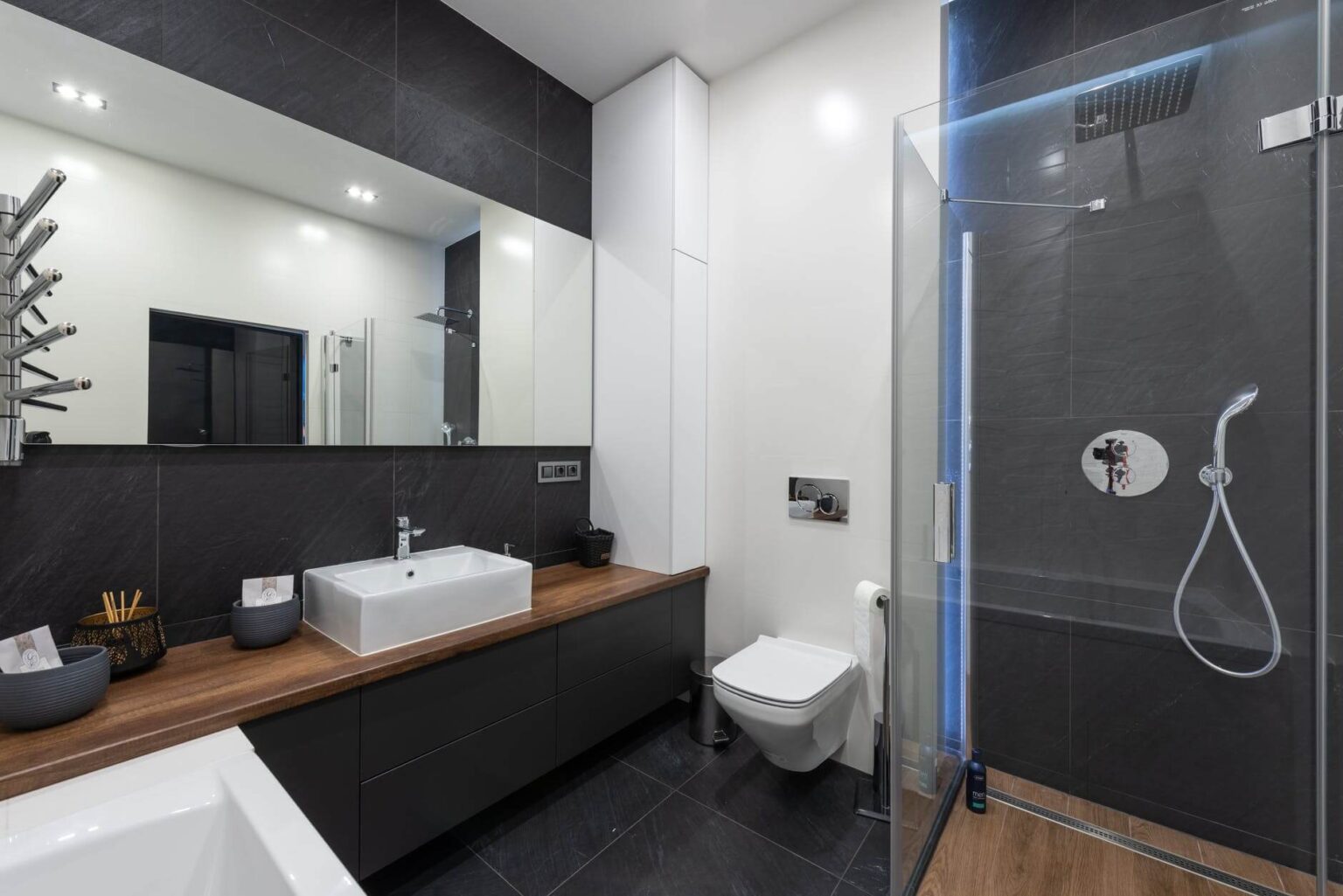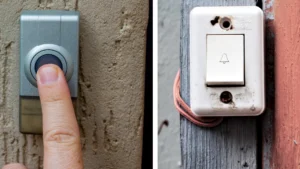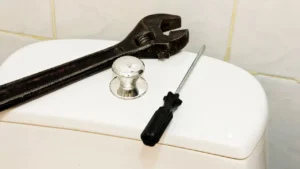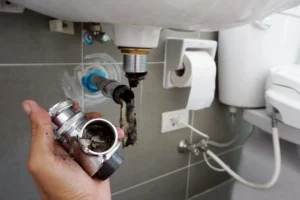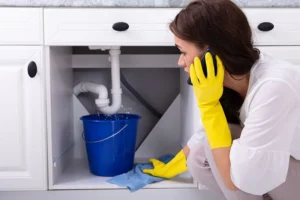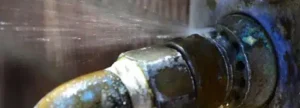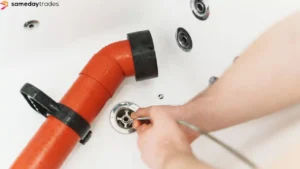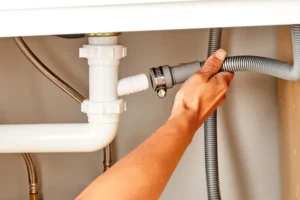Having trouble with your hot water Adelaide? Rusty water could be a clear warning sign. This article will guide you through identifying when your system needs fixing or replacing, making the process less daunting.
Keep reading to stay warm this winter.
Understanding Hot Water Systems
Hot water systems come in various types, each offering different features. Knowing these options helps you choose the best system for your needs.
Types of Hot Water Systems
Hot water systems come in various types, each with its own benefits. Understanding these options helps you make informed decisions.
- Storage Hot Water Systems
These systems heat and store water in a tank. They provide hot water on demand but can run out if usage exceeds the tank’s capacity. Constantly running out of hot water is a sign your system needs attention. - Continuous Flow Hot Water Systems
These heaters do not store water. They heat it as it flows through the system. This means you have hot water whenever you need it, reducing the chances of using discoloured or rusty water. - Heat Pump Hot Water Systems
Heat pump systems use electricity to move heat from the air or ground into the water. They are energy-efficient and suitable for many homes in Adelaide. Rising energy bills may indicate that your current system isn’t performing well. - Solar Hot Water Systems
Solar heaters use sunlight to generate hot water, making them eco-friendly and cost-effective over time. Their efficiency relies on sunlight availability, which can be inconsistent during cloudy days. - Gas Hot Water Systems
Using gas to heat the water makes these systems effective and fast. However, they may emit foul odours if there’s an issue requiring repair or replacement. - Electric Hot Water Systems
These units heat water directly using electric elements. They are easy to install but can lead to high electricity costs without proper maintenance.
Choosing the right type ensures efficient performance and longevity for your home’s system. Next, we will explore the significance of energy-efficient options and professional technicians.
Advantages of Energy Efficient Systems
Energy-efficient systems offer significant benefits for homeowners. They help reduce energy bills, making monthly expenses more manageable. An efficient hot water system consumes less energy, which also lowers your carbon footprint.
These systems often provide consistent performance while using less power.
Older systems may not work well and can lead to rising energy costs. By upgrading to an efficient unit, you can avoid these problems and enjoy better performance. Energy-efficient models save resources without sacrificing comfort or convenience.
Choosing one of these systems contributes positively to the environment while keeping your household running smoothly.
Significance of Professional Technicians
Professional technicians play a crucial role in maintaining hot water systems. They possess the knowledge and skills to identify issues such as rusty or discoloured water, which indicates corrosion inside your water heater tank.
Their expertise helps address problems like foul odours, consistent leaks, and rumbling noises from the unit.
Relying on professionals ensures proper repairs or replacements of old hot water systems that may be over ten years old. Technicians can also assess energy efficiency to reduce rising energy bills linked to poor system performance.
Engaging experts sets up a smoother path toward understanding signs of a malfunctioning hot water system.
Signs Your Hot Water System Needs Repair
Your hot water system can show clear signs of trouble. Watch for a lack of hot water and strange noises that signal potential issues.
Lack of hot water
A lack of hot water often signals trouble with your system. You expect hot water when you turn on the tap. If it doesn’t come, something is wrong. This issue might arise from several factors such as faulty heating elements or gas supply problems.
Unpredictable water temperature and constant running out of hot water can also indicate a failing hot water system. Strange noises may occur alongside these symptoms, suggesting internal issues that require urgent attention.
Addressing these signs early can help prevent further complications in your Adelaide hot water system. Next, let’s explore more signs that could point toward the need for repair.
Strange noises or smells
Strange noises or foul smells from your hot water system indicate possible issues. Rumbling and weird sounds often suggest internal problems that need immediate attention. These noises can signal sediment buildup, which affects efficiency and performance.
You might also notice rusty or discoloured water coming from your taps due to corrosion inside the tank. A strong smell of gas is another warning sign that something is wrong with the system.
If you encounter these symptoms, it’s crucial to assess whether a repair or replacement is necessary for your Adelaide hot water system. Taking action sooner can save you money on energy bills and prevent further damage.
Leaks or corrosion
Leaks from your hot water tank clearly indicate a problem. A leaking tank can lead to severe water damage in your home. Rusty or discoloured water coming from your taps shows corrosion inside the heater tank.
This issue signals that your system is deteriorating and may need repair or replacement soon.
Foul odours emitted from the hot water system can also point to necessary repairs. Inconsistent temperatures further confirm problems with functionality. Take action quickly if you notice these signs, as they often show that your hot water system needs attention.
Keep an eye on leaks, rust, and strange smells to avoid bigger issues down the line.
Inconsistent water temperatures
Inconsistent water temperatures signal possible issues in your hot water system. You may experience sudden changes from hot to cold water during showers. This problem often indicates internal damage that requires repair or replacement.
Rumbling noises might also accompany these temperature fluctuations. These sounds could point to sediment build-up inside the tank, affecting its efficiency. Constant repairs will not solve this issue if the system is nearing the end of its lifespan.
If your hot water system shows unstable temperatures, it’s time to take action and assess its condition.
Signs Your Hot Water System Needs Replacement
Signs Your Hot Water System Needs Replacement:
Frequent repairs can cost more than a new system. If your unit is over ten years old, it’s time to consider an upgrade.
Constant repairs
Constant repairs can indicate serious issues with your hot water system. If you find yourself frequently calling for plumbing service, it may be time to consider replacement. An old unit often faces declining performance after ten years.
Your energy bills might also rise as an inefficient system struggles to operate effectively.
If your hot water system experiences rumbling noises or unusual sounds, these could signal internal problems needing attention. Rusty or discoloured water suggests corrosion inside the tank.
Leaks from your hot water tank clearly show it requires repair or possibly replacement. Consistently running out of hot water is another sign that indicates a faulty system.
Older than 10 years
Hot water systems older than 10 years often show signs of deterioration. Age affects performance significantly. These systems may struggle to provide consistent hot water, leading to unpredictable water temperature.
Regular repairs may become necessary as the system ages. Older units consume more energy, resulting in rising energy bills.
Consider replacing a hot water system that is over a decade old. Such systems often lack energy efficiency and can lead to increased costs over time. Smelly, discoloured, or rusty water could also indicate age-related issues.
Prioritise your comfort and safety by keeping an eye on the age of your hot water system for timely maintenance or replacement decisions.
Poor energy efficiency
Poor energy efficiency can signal major problems with your hot water system. Rising energy bills often indicate that the system is not working properly. An inefficient unit might struggle to heat water efficiently, using more energy than necessary.
This waste leads to increased costs and unnecessary strain on resources.
An old hot water system may contribute to these issues. If it’s over ten years old, it likely uses outdated technology. Upgrading to a newer model could save you money in the long run while providing better performance.
Look for signs of poor energy efficiency as they often highlight the need for action regarding your hot water system’s repair or replacement needs.
Next up, let’s explore specific signs that indicate your hot water system needs repair.
Choosing the Right Hot Water System for Your Home
Choosing the right hot water system requires careful consideration. Assess your household’s needs and compare different models to find the best fit.
Consider your household and usage
Choosing the right hot water system depends on your household needs and usage. Families with multiple bathrooms or high-demand appliances need a system that delivers enough hot water.
An older hot water system, over 10 years old, may struggle to keep up. Constantly running out of hot water indicates the need for a replacement.
Evaluate how often you use hot water daily. Rising energy bills could signal inefficient performance from your current system. Inconsistent water temperatures can also show that it can’t meet your demands anymore.
These factors help identify signs your Adelaide hot water system needs repair or replacement effectively.
Evaluate different options
Evaluating different options for your hot water system is crucial. The right choice will enhance efficiency and reliability.
- Assess System Type
Choose between storage tanks and continuous flow systems. Storage tanks hold a specific amount of hot water, while continuous flow heats water on demand. Consider your household needs to select the most suitable type. - Review Energy Efficiency Ratings
Look for systems with high energy efficiency ratings. These systems save you money on energy bills over time. Older models often have poor energy efficiency and can cost more to operate. - Consider Capacity Requirements
Determine how much hot water your family uses daily. A larger family may need a bigger tank or a continuous flow system to meet their demands without running out of hot water. - Evaluate Maintenance Needs
Some systems require more maintenance than others. Be prepared for regular servicing to keep your system running efficiently, especially if you choose an older model that may have more issues. - Investigate Brand Reliability
Research various brands known for their durability and performance. Popular brands often have warranties that guarantee quality, so check before making a purchase. - Calculate Long-term Costs
Factor in installation costs alongside potential repair expenses over the years. An old hot water system may need constant repairs, increasing overall expenditure significantly compared to a new, efficient model. - Explore Eco-friendly Options
Look into solar-powered or heat pump systems if you’re interested in reducing your environmental impact. These options can lower both gas emissions and utility bills considerably over time. - Get Professional Input
Consult with professional technicians for insights tailored to your home’s needs and setup requirements. Skilled technicians can help identify the best options based on signs of your existing hot water system issues like leaks or strange noises. - Check Local Regulations
Understand any local regulations regarding installation and maintenance of hot water systems in Adelaide. Compliance is essential to avoid fines and ensure safety in your home environment. - Compare Warranty Offers
Investigate warranty offers from different manufacturers when selecting a new unit or replacement system, as warranties can signify product trustworthiness and long-term reliability.
The right evaluation of these options ensures you choose an effective hot water system while addressing symptoms of a broken hot water system promptly.
Maintenance tips for a longer-lasting system
Proper maintenance keeps your hot water system running efficiently. It can also help prevent costly repairs or replacements.
– Inspect your tank regularly. Check for leaks and corrosion on the exterior of the unit. A leaking hot water tank needs immediate attention to avoid further damage.
– Flush the tank annually. Sediment builds up over time, which can reduce efficiency and lead to rusting. Performing this simple task helps maintain optimal performance.
– Monitor water quality. Rusty or discoloured water signals underlying issues in your hot water system. Address these signs quickly to prevent further deterioration.
– Listen for unusual noises. Rumbling sounds often indicate internal problems that require investigation. Strange noises could mean it’s time for repair or replacement.
– Adjust the temperature setting carefully. Maintain a safe temperature around 60 degrees Celsius (140 degrees Fahrenheit) to prevent scalding while preserving energy efficiency.
– Check insulation on pipes and tanks regularly. Proper insulation reduces heat loss, improving energy efficiency in your home.
– Schedule professional servicing every few years with qualified technicians. Regular check-ups help identify potential problems before they escalate into significant issues.
– Replace magnesium anode rods as needed to combat corrosion inside the tank. These rods attract corrosive elements and prolong the life of your hot water system.
– Keep an eye on energy bills closely; rising costs might indicate inefficiencies within your hot water system that need addressing promptly.
– Manage usage during peak hours wisely to maximise hot water availability throughout the day, avoiding constant demand which can stress the system unnecessarily.
Implementing these tips allows you to spot indications of a faulty hot water system early, ensuring you stay ahead of repairs and enjoy a reliable supply of warm water at home.
Benefits of hiring a professional for installation and replacement
Maintaining a hot water system takes effort. Hiring a professional for installation and replacement brings many benefits. Professionals guarantee safety and efficiency in their work.
They understand the complexities of hot water system issues to look out for, ensuring correct installation.
Experienced technicians can identify warning signs of a failing hot water system early on. They also help you choose the right model based on your household’s needs. This choice improves energy efficiency and reduces costs over time.
Investing in professional services can prevent rusty or discoloured water from becoming an issue later, saving both hassle and money in repairs down the line.
Conclusion
Your hot water system needs attention if you notice strange noises or discoloured water. Leaks and rising energy bills are also warning signs. Older systems often fail to perform well, requiring replacement.
Address these issues promptly to maintain comfort in your home. Regular inspection can help prevent bigger problems down the line.

